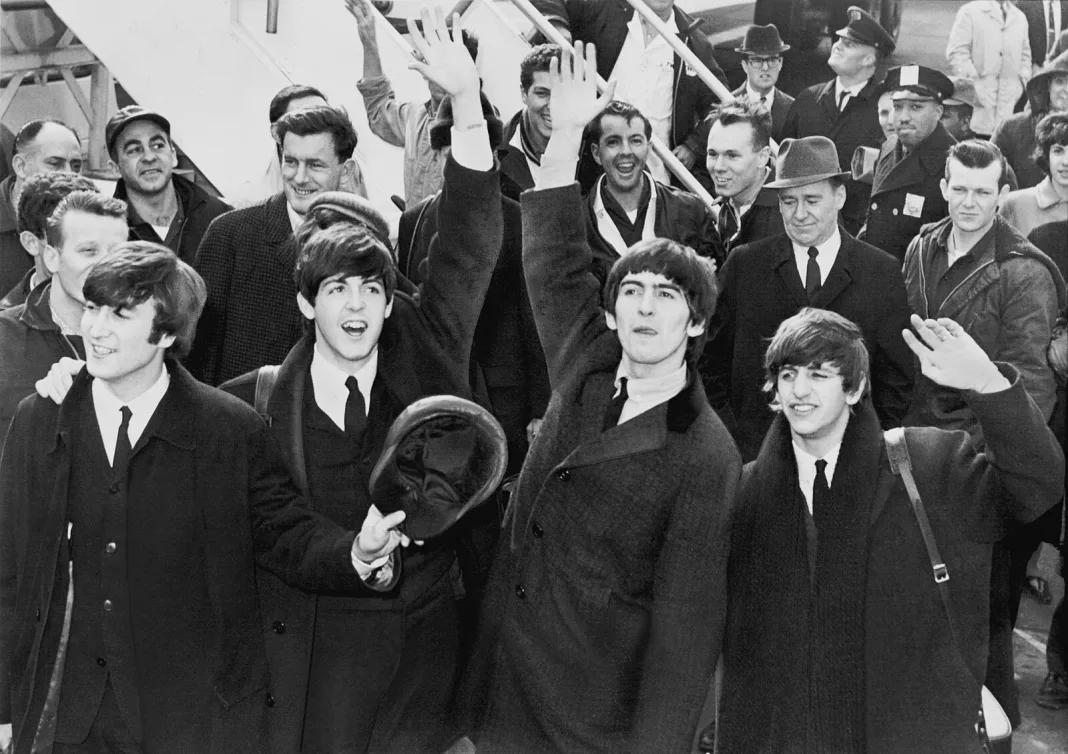The last month has too frequently left me wondering what the obsession with revivals and reunions is all about. We know that die-hard fans beg for reboots or prequels, and arguably this is a fine enough justification, but what is interesting is that far too often they end up being disappointing. For me, the nail in the coffin was the failed revival of two parts of pop culture that I hold in high esteem: The Hunger Games and The Beatles.
I’ve always slightly cringed at band reunions and movie remakes. After a while, you wonder how many more Star Wars movies can be released, or how many times The Spice Girls can go on a reunion tour. There are countless examples of media reboots that have flopped and failed to add anything to their franchises, even when it wasn’t necessary. Just a few include the 2019 Charlie’s Angels movie, the 2011 Mean Girls 2 sequel, or the band All Saints 2006 reunion wherein the band members soon after claimed (falsely) that they would never reunite again. You might think I sound cynical as these releases seem to be in good taste or ‘for the fans’. But when historically these revivals never live up to the original, you’re left thinking: who or what was that really for?
When thinking about it, most of my favourite shows or movies have been the ones that didn’t milk their potential. Whilst it’s painful we’ll never get another season of Phoebe Waller Bridge’s Fleabag, or Ricky Gervais and Stephen Merchant’s British edition of The Office, their brilliance partially lies in the fact we are left wanting more. We don’t know everything there is to know about all the characters, and their storylines are not tightly wrapped up. This makes returning to them even more enjoyable, as it feels like you are constantly learning something new about beloved characters. But what a prequel like The Ballad of the Songbirds and Snakes or a song such as Now and Then does, is it ruins their sacredness. Too much is revealed, and we lose interest in its legacy. We are let it on John Lennon’s private demos, and the question as to whether revolutionary music was left unreleased is partially resolved. Equally, when the origins of The Hunger Games are over-explained, our excitement or intrigue is pacified. And so, the franchises become less interesting, despite the fact the intention is the opposite.
Considering The Beatles are the bestselling artists in history and The Hunger Games trilogy is the third highest-grossing movie based on a young adult book of all time, I have felt further confused about the motivation for the revivals. Clearly, there is no argument that either of the brands would need something to keep up interest or lengthen their legacy. On top of this, both are avidly critically acclaimed. It’s not then as if there was an undiscovered masterpiece that would change the whole perception of either’s reputation. So, what we are left with is two majorly mediocre pieces of work that are not only distasteful for the lack of artistic integrity and poor quality but also clear examples of greed.
Also, on a simpler level, it was hard not to feel offended by how bad both revivals were. Whilst contrasting in content, The Beatles’ Now and Then, and The Hunger Games: The Ballad of Songbirds and Snakes represent the same issue. They fell into the trap of being lazy and underdeveloped. What happens is we see money-grabbing studios and producers convinced that the brand’s legacy and loyal fanbase justify them releasing anything as long as it’s new; regardless of the quality. And, to an extent, they aren’t wholly wrong. I still bought tickets to see the movie, and I still streamed the song. But the difference was I came out of both experiences confused by what I had just seen and heard. I came out having lost respect for both franchises, knowing how brilliant the work that had come before had been, and knowing that this is how a new generation would perceive both things. And I’m not the only one to think this.
Before George Harrison’s death in the ‘90s, The Beatles had already attempted to release Now and Then. However, the technology at the time wasn’t good enough, and Lennon’s voice could not be separated adequately to clearly hear the lyrics. In the twelve-minute documentary released about the making of the song, Paul McCartney revealed Harrison said the original attempt at the demo was “fucking rubbish” and that he hoped “someone does this to all my crap demos after I’m dead – turn them into hit songs”. McCartney’s case for releasing the song was that it was in memory of his friends. However, when one of said friends, who is now dead, actively challenged its release, you’ve got to wonder how true this is. Not only does this comment made by Harrison confirm my lacklustre feelings towards the track, but it also poses a moral question about releasing work by someone who can no longer consent. Whilst it isn’t for me to decide, it does add another layer of discomfort in knowing we can’t be sure that this is what George Harrison or John Lennon would have wanted.
Of course, there will always be examples that break the mould. Toy Story 4 was a beautiful homage to the original movies, and ABBA’s Voyage Show continues to receive rave reviews. But this doesn’t make up for the countless awful remakes, sequels, prequels, and revivals that tarnish what once were remarkable pieces of work. Because ultimately, what the half–baked reboots do is leave you wondering if the thing you so cherished to begin with, was ever really that good.


